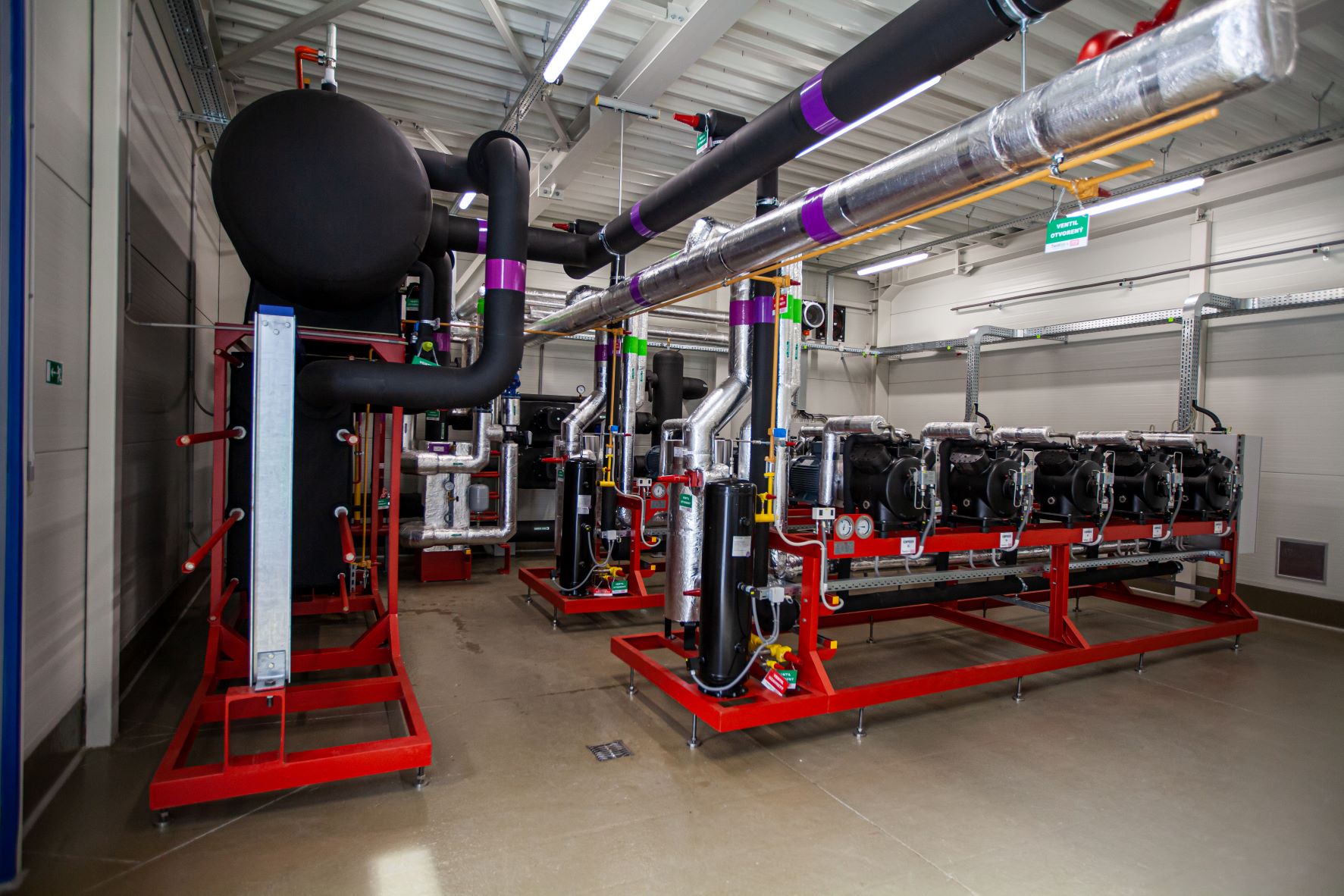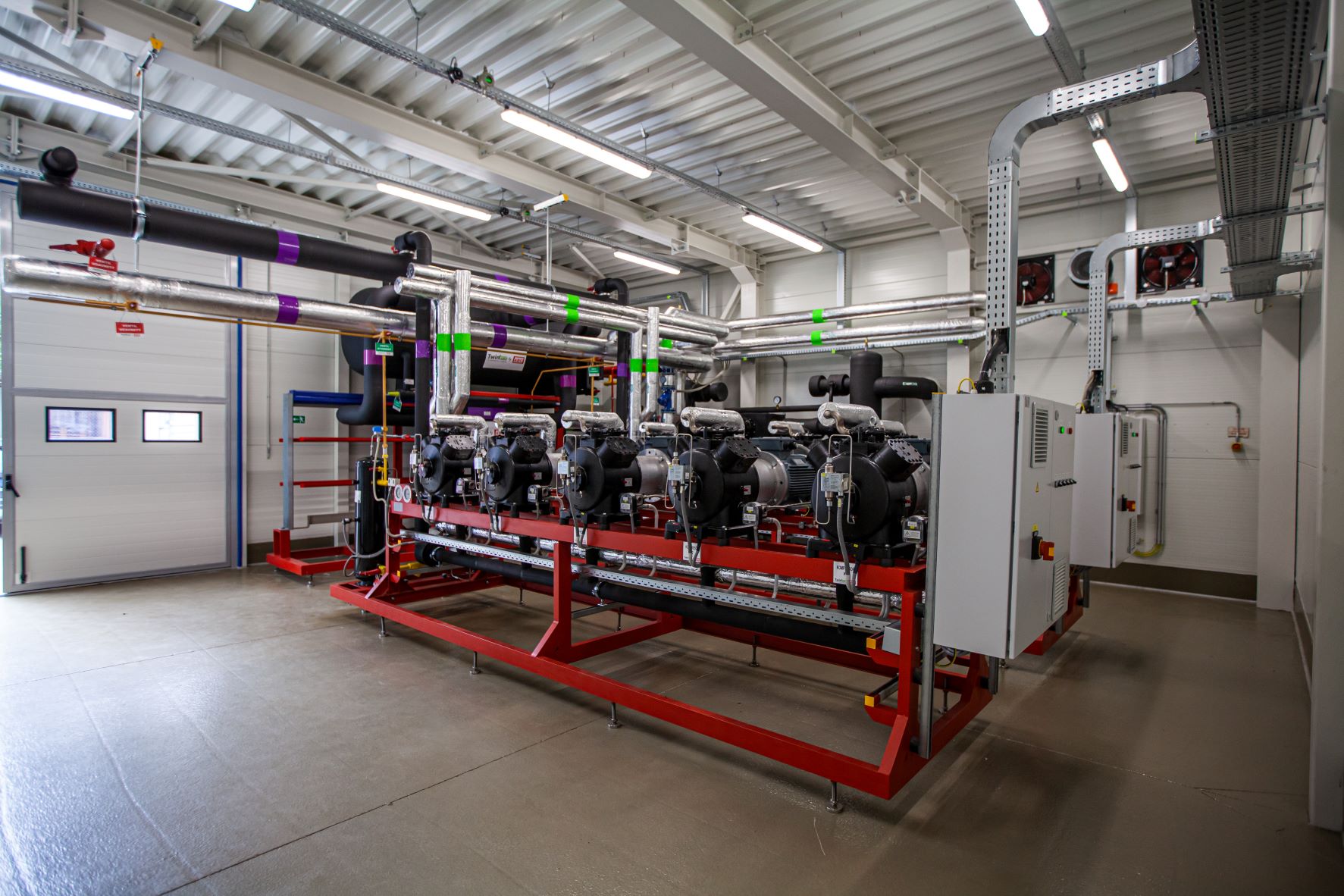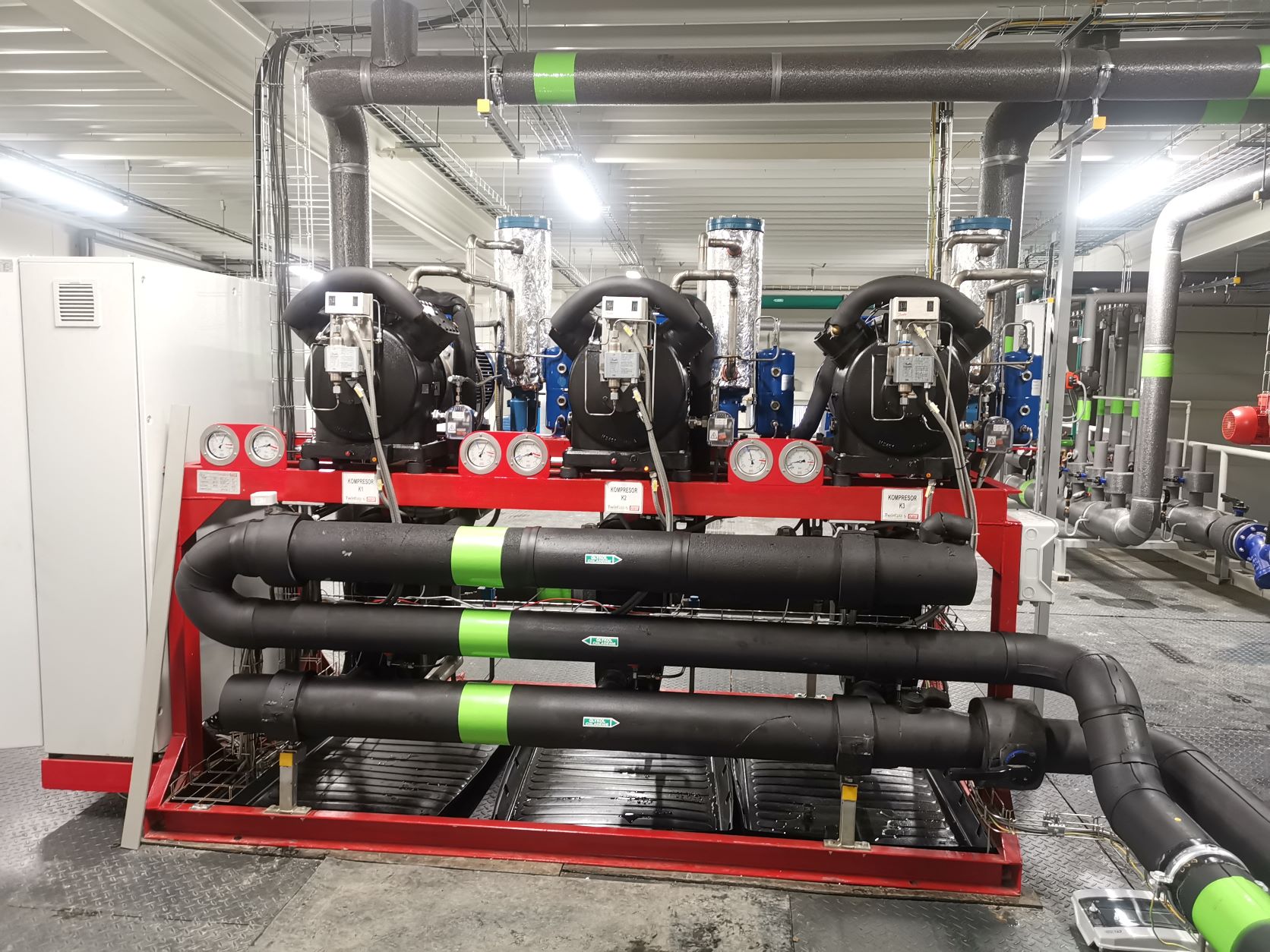Production of ice water for the food industry

Address
ABC Food Machinery spol. s r.o.Nerudova 51
821 04 BRATISLAVA 2
IČO: 31 346 871
https://abcfood.sk/
Contact person
Juraj Grieš0911 517 529
info@abcfood.sk
View profile
Description
The food industry consumes large quantities of ice water in the production process, the preparation of which is very energy intensive. The company's concept enables a substantial reduction in this energy consumption. The basis is the use of several smaller compressors, which allow their gradual switching on and off to continuously and precisely regulate the power according to the actual demand. Maximum power is usually only required during the initial phase of production, e.g. processing milk after it has been imported. This value determines the maximum required cooling capacity and is several times higher than the cooling requirement for subsequent operation. The additional power required drops to 10% of the maximum and covering such a drop in power with one large compressor is highly uneconomical. A single compressor plant cannot be operated below about 53% of its capacity, so the compressor would cycle at low loads, which has a very negative impact especially on the lifetime of the device and the need for servicing. At the same time, a compressor start-up phase that would be repeated x times is considerably more energy intensive than normal operation, and the power consumption is generally higher when powering a larger device even at lower speeds.
Economic benefits
- significantly lower energy consumption,
- significantly improved operating cost efficiency,
- extended equipment lifetime,
- simpler and more economical servicing with minimal impact on production and operational continuity,
- increased safety of the device against possible damage to the environment or to the health of persons,
- a wider possibility of disconnection from fossil fuel supply and greater energy independence.
Environmental benefits
- the use of 100% environmentally friendly natural refrigerants R717 and R723, which do not produce CO2 emissions, have no impact on ODP (Ozone Depletion Potential) and a negligible impact on GWP (Global Warming Potential, the greenhouse effect),
- a substantial reduction in the energy intensity of the whole system without the need for gas with minimal electricity consumption.
Examples of implementation of the solution in practice
Dairy industry, meat industry.







